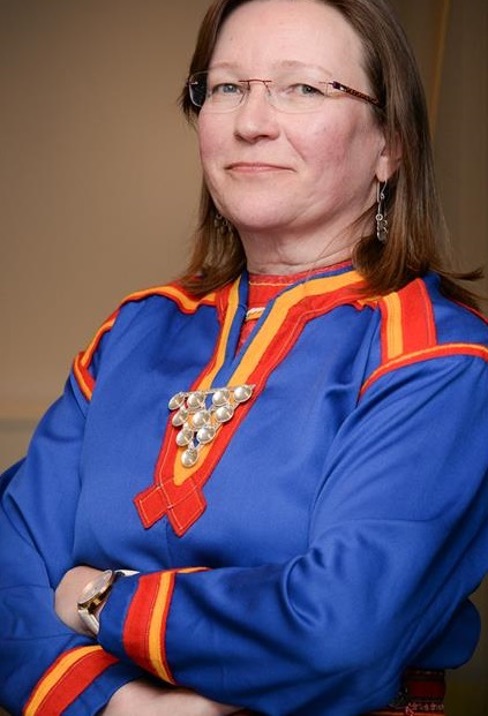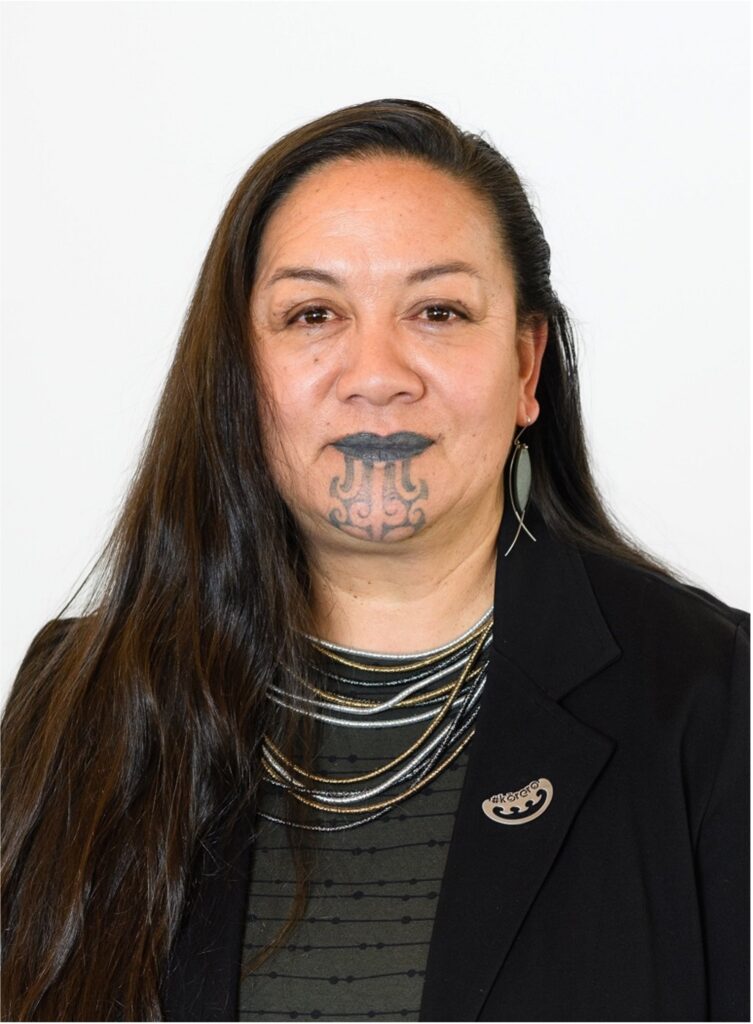Event Details
When: Wednesday 28 April 2021, 10:00 to 11:30 Central European Summer Time (CEST), 18:00 to 19:30 Australian Eastern Standard Time (AEST), 20:00 to 21:30 New Zealand Standard Time (NZST)
Where: This event will take place on Zoom, please register here: https://zoom.us/webinar/register/WN_GAmzXs1CRgGCX2o_cJicNg
Organisers: The Norwegian National Human Rights Institution and the Sámi Parliament of Norway.
Join us for a side event on “A Human Rights-Based Approach to Indigenous Statistics” during the UN Permanent Forum on Indigenous Issues (UNPFII) 20th Session. The event will begin with a presentation of the Norwegian National Human Rights Institution’s recent report on Sámi statistics in Norway , followed by a panel discussion with experts in Indigenous statistics and population research. The event will be held in English.
Program
Welcome and Opening Remarks (10min):
- Adele Matheson Mestad, Director of the Norwegian National Human Rights Institution
- Aili Keskitalo, President of the Sámi Parliament of Norway
Presentation of the Report (10min):
- Peter Dawson, Advisor, Norwegian National Human Rights Institution
Panel Discussion (50min):
- Dr Tahu Kukutai, Professor, National Institute of Demographic and Economic Analysis, The University of Waikato, Aotearoa, New Zealand
- Dr Ian Andersson AO, Professor and Deputy Vice-Chancellor, Australian National University
- Dr Ann Ragnhild Broderstad, Academic Director and Senior Consultant, Centre for Sámi Health Research, UiT The Arctic University of Norway
- Iulie Aslaksen, Senior Researcher, Statistics Norway
- Rhonda Paku, Kaihautū – Director, Te Tohu Rautaki Angitu Māori, Statistics New Zealand
Questions from the Audience (15min)
End of Panel Discussion and Closing Remarks from the Moderator (5min)
Background Information
The disaggregation of statistical data on Indigenous peoples is an important component of States’ human rights obligations and their commitments under the Sustainable Development Goals. Disaggregated statistical data assists both States and Indigenous peoples to monitor the implementation of human rights, measure the prevalence and effects of discrimination and develop evidence-based policies and programs. Such data is also crucial in enabling Indigenous peoples to exercise their collective right to self-determination, as well as rights to lands, resources, cultures and languages. Without such data, it is difficult for Indigenous people to measure the changes that are occurring within their communities to inform their own decision-making processes and self-governance.
Despite this, States such as Norway do not currently disaggregate statistical data by ethnicity or Indigenous status due to concerns over privacy and data protection, a history of misuse of Indigenous peoples’ data and difficulties in quantifying Indigenous group representation. International human rights bodies have thus expressed concern that Indigenous peoples often remain invisible within official statistics and have recommended that States adopt specific safeguards as a prerequisite to the collection of Indigenous peoples’ data. In States such as Australia and New Zealand, where official statistics have been disaggregated by Indigenous status for many years, the focus has now shifted to ensuring that Indigenous peoples participate as equal partners in the collection, analysis and application of their own data – a concept known as Indigenous Data Sovereignty.
This side event will explore the issues surrounding Indigenous statistics from a human rights perspective, with practical examples of the different approaches to Indigenous statistics in Norway, Australia and New Zealand. Speakers will also reflect on the theme of the UNPFII this year, with a particular focus on how a human rights-based approach to Indigenous statistics can promote effective, accountable and transparent institutions at all levels.

Aili Keskitalo is the President of the Sámi Parliament in Norway and the first female President of any of the Sámi Parliaments in Norway, Sweden and Finland, serving for the first time in 2005. She represented the Arctic region in the Steering Committee of the International Year of Indigenous Languages (IYIL2019), and she now represents the Arctic region in the Steering Committee of the International Decade of Indigenous Languages (IDIL2022–2032). Aili has a Master in Public Administration from Copenhagen Business School, focusing on higher education in Norway and Greenland.

Adele Matheson Mestad is a Norwegian lawyer and the Director of the Norwegian National Human Rights Institution (NIM). Before she began working for NIM she practiced law for ten years at the Office of the Attorney General of Norway. She has also worked in the Office of the Prosecutor at the International Criminal Tribunal for Rwanda (ICTR). Adele has been appointed a mediator at the National Mediator of Norway and in 2020 she was appointed a member of the government’s Freedom of Expression Commission. Adele holds a master’s degree in law from the University of Oslo and a LLM in International legal studies from New York University.

Peter Dawson is a Wiradjuri lawyer from Australia and Advisor at the Norwegian National Human Rights Institution (NIM), where he works with Sámi rights, discrimination and hate speech, climate change and the COVID-19 pandemic. Peter is also responsible for NIMs work with Sámi statistics. Before joining NIM, Peter worked with the Australian Human Rights Commission, the campaign for constitutional recognition of Indigenous Australians and a law firm specialising in Indigenous Cultural and Intellectual Property. Peter holds a Bachelor of Laws and Bachelor of Arts (Politics & Intl. Relations) from the University of Notre Dame Australia and a Master of Public International Law from the University of Oslo.

Dr Tahu Kukutai (Ngāti Tiipa, Ngāti Kinohaku, Te Aupōuri) is Professor of Demography at the National Institute of Demographic and Economic Analysis, The University of Waikato, in Aotearoa New Zealand. Tahu specialises in Māori and Indigenous demographic research and has written extensively on issues of Māori population change, official statistics, Indigenous data sovereignty, and ethnic classification. Tahu is a founding member of the Māori Data Sovereignty Network Te Mana Raraunga and the Global Indigenous Data Alliance. She co-edited Indigenous data sovereignty: Toward an agenda (ANU Press, 2016) and Indigenous data sovereignty and policy (Routledge, 2020). Tahu has undertaken research for numerous iwi (tribes), Māori communities, and Government agencies, and provided strategic advice across a range of sectors. She is a member of the New Zealand Chief Science Advisor Forum and a technical advisor to the Data Iwi Leadership Group of the Iwi Chairs Forum.

Dr Ann Ragnhild Broderstad is a Research Professor in epidemiology with Indigenous Health Research. She belongs to the Markasami population, living in the southern part of Troms County in Northern Norway. She is the Academic Director at the Centre for Sámi Health Research, at UiT The Arctic University of Norway. Broderstad is a specialist in internal medicine and hematology, and works also as senior consultant (MD) at the University Hospital of North Norway, Harstad. Her main research interest is within chronic diseases in connection to living conditions and socio-economic situation in connection to ethnic groups, with a special focus on the Sámi people. Broderstad is the Head of two surveys, namely the SAMINOR Study and “From Rural to Urban Living”. Through her research work, Broderstad has been involved in the development of the Ethical Guidelines for Sámi Health Research and Research on Sámi Human Biological Material led by the Sami Parliament. She was also a member of the Arctic Human Health Research Group in the Sustainable Development Working Group at the Arctic Council for several years until 2017.

Dr Ian Anderson AO is the Deputy Vice-Chancellor (Student and University Experience) at the Australian National University (ANU). Professor Anderson is a Palawa man from the northwest coast of Tasmania with traditional ties to country known as Tebrakunna. Before joining ANU, he worked as the Deputy Secretary of Indigenous Affairs at the Department of the Prime Minister and Cabinet and the Deputy Chief Executive Officer at the Australian Government’s National Indigenous Australians Agency. Ian has spent most of his professional life working in Indigenous health and education, and graduated as a doctor in 1989. He was awarded his PhD in Sociology and Anthropology in 2006. He has a long-term association with the Victorian Aboriginal Health Service as an Aboriginal health worker, doctor, Chief Executive Officer and board member. Professor Anderson has also held several senior appointments, including Director of Research for the Lowitja Institute and Chair of the National Aboriginal and Torres Strait Islander Health Equality Council, among others. Ian became an Officer of the Order of Australia (AO) in 2017 for distinguished service to the Indigenous community, particularly in the areas of health equality, aged care and education. In 2018 he was appointed a Fellow of the Academy of Social Sciences and Fellow of the Academy of Health and Medical Sciences.

Rhonda Paku, of the Ngāti Kahungunu & Tuhoe tribes, is the Kaihautū (Director Māori) for Statistics New Zealand. As Kaihautū, Rhonda shares the strategic leadership of Statistics New Zealand with the executive team and provides critical cultural leadership across the whole organisation. Rhonda’s role focuses on unleashing the power of data to change lives and particularly for Māori to thrive as Māori, building capability in cultural transformation for Statistics New Zealand’s national stewardship of data and increasing the quality and value of data for evidenced-based decision-making.

Iulie Aslaksen is Senior Researcher at the Research Department of Statistics Norway. Her research focuses on knowledge integration for sustainable development goals, within ecosystem accounting, ecological economics, and economies of the Arctic, including work on Sámi statistics. Her recent work includes co-editing the report The Economy of the North ECONOR 2020, a circumpolar overview of Arctic economies. She has recently led and co-led several interdisciplinary research projects addressing climate and biodiversity policy, aiming to improve the knowledge basis for sustainable land use.
